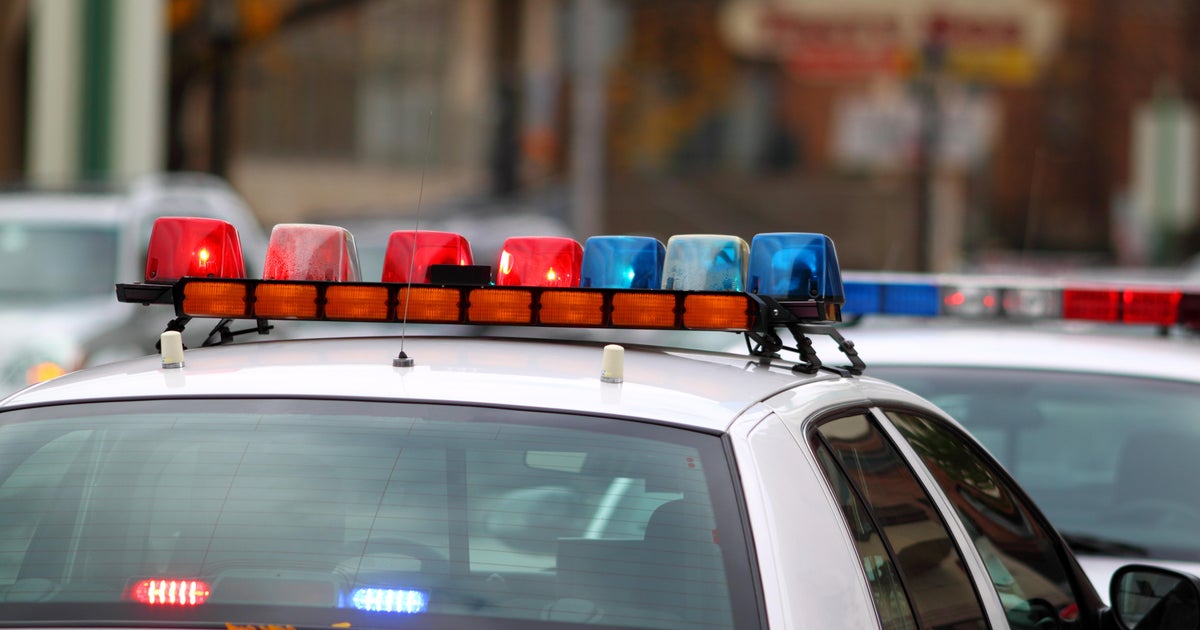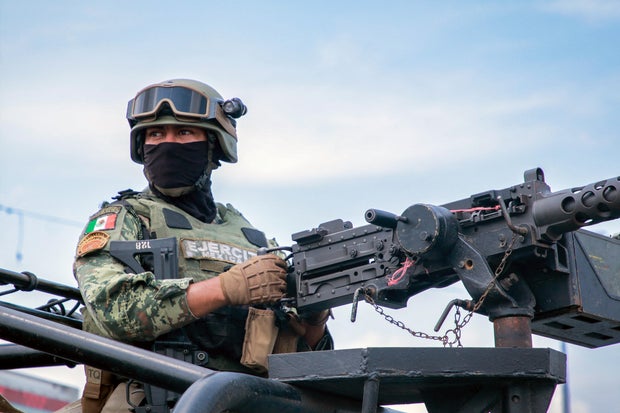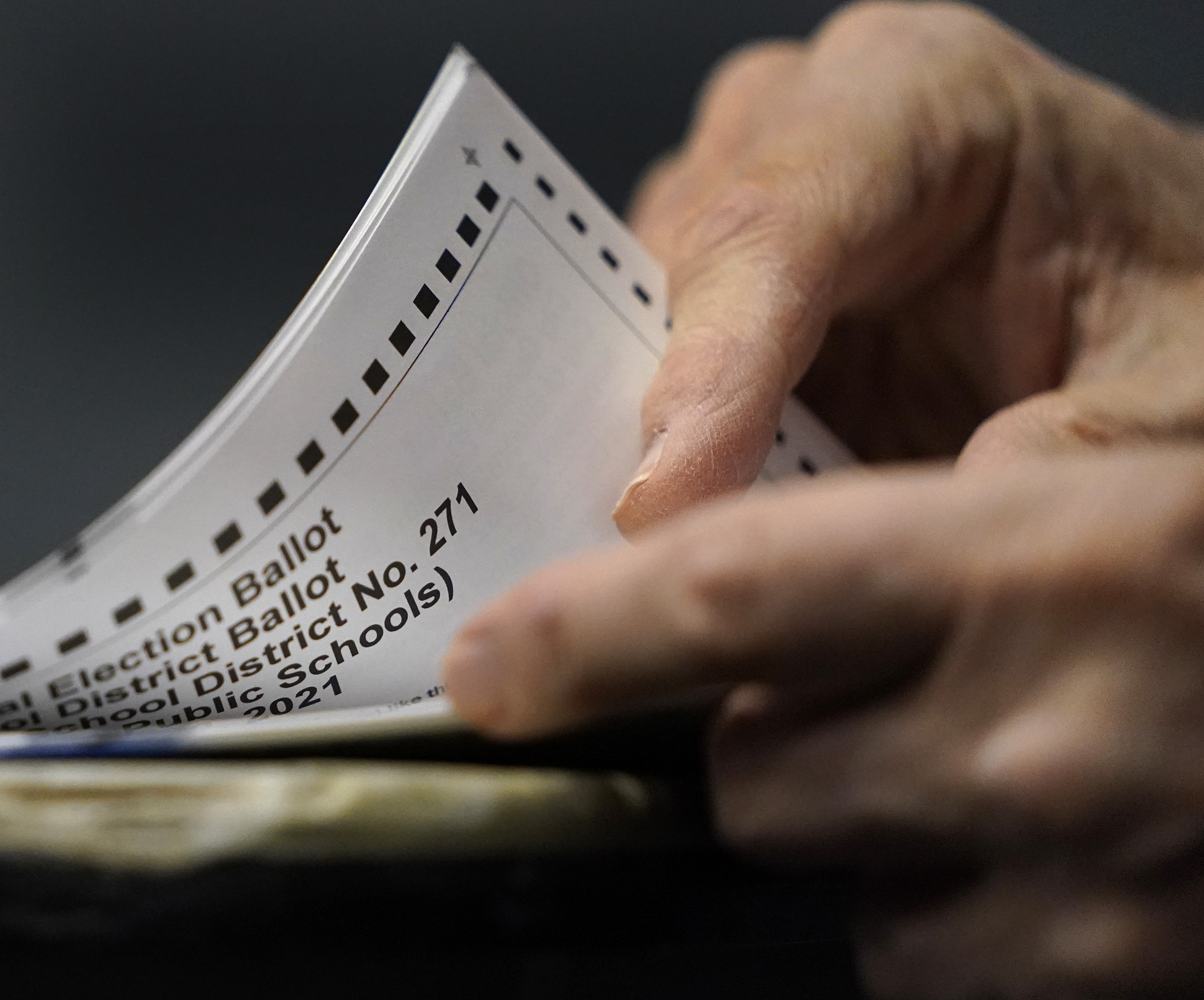CBS News
Charges against Georgia high school shooter’s dad echo precedent set in historic Crumbley case

(CBS DETROIT) – The father of the 14-year-old accused of killing two students and two teachers at a Georgia high school was charged in connection with the shooting. His charges follow in the wake of the convictions of two Michigan parents after a school shooting carried out by their child.
Colin Gray, 54, has been charged with four counts of involuntary manslaughter, two counts of second-degree murder and eight counts of cruelty to children, in the shooting that happened at Apalachee High School Wednesday morning. The 14-year-old suspect was charged with four counts of felony murder.
The Georgia Bureau of Investigation Director Chris Hosey said the charges come from Colin Gray “knowingly allowing his son to possess a weapon.” The father was in court Friday morning, where a judge told him he could face up to 180 years in prison if convicted on all counts.
The father of the shooting suspect being charged comes after the historic case of James and Jennifer Crumbley, who were sentenced to 10 to 15 years in prison for involuntary manslaughter, becoming the first parents in the U.S. to be convicted in a mass school shooting carried out by their child.
James and Jennifer Crumbley were held responsible for their roles in the Oxford High School shooting that killed four students — Justin Shilling, Madisyn Baldwin, Tate Myre and Hana St. Juliana — and injured seven other people on Nov. 30, 2021.
During their trials, the prosecution argued that the Crumbley parents ignored their son’s mental health needs and purchased the gun that he used in the shooting.
Oakland County Prosecutor Karen McDonald, the prosecutor in the Crumbley case who set the precedent for prosecuting parents in mass school shootings, reacted to the news that the Georgia suspect’s father was charged in an interview with CNN Thursday.
“My reaction is rage because you know it the prosecution of the Crumbleys was never, ever meant to be a floodgate of charges against parents, because it was such an egregious set of facts,” said McDonald. “I share the emotions of the entire country that, even after that well-publicized case, we’re still here.”
Former federal prosecutor and defense attorney Rick Convertino, appearing on CBS News Detroit to discuss the shooting at Apalachee before it was revealed that the shooter’s father had been charged, noted the differences between the gun laws in Georgia and Michigan and claimed “gun culture” is different in Georgia than it is in Michigan. Georgia passed a law in 2022 that allowed residents to carry without a permit, which means adults do not need to have a permit to buy or carry buy rifles, shotguns or handguns.
One of the most significant differences, according to Convertino, is with the gun storage laws. “In Georgia, there’s no specific child-preventive act that requires the guns to be secured and safe from unrestricted children to have access to it,” said Convertino.
There is also no gun lock law in Georgia or any “red flag” laws that allow for the removal of guns from someone who is determined to be a risk for harming themselves or other people. Georgia’s laws are among the least strict in the nation, according to a CBS News analysis.
“We’ve seen this 14-year-old shooter had made threats a year before. The father apparently said to the police that he bought the AR-style weapon for a Christmas present for his minor child,” Kris Brown, president of gun control advocacy organization Brady, told CBS News’ Natalie Brand, drawing a parallel to the Crumbley case.
Brown said Colin Gray’s arrest and the convictions of James and Jennifer Crumbley send a message.
“If you have a firearm in the home, you better safely store that firearm, or you will have a risk if something happens of being criminally charged,” she said.
Michigan’s new gun safety laws went into effect in February, a little over two years after the Oxford High School shooting.
CBS News
How dogs wearing backpacks are helping to rewild an English woodland

Lewes, England — In an urban nature reserve in a small town about two hours south of London, you’ll find the Lewes Railway Land urban nature reserve teaming with life — including a lot of humans and their companions.
“We get lots of people come onto the reserve — which we want — lots of dog walkers,” Dylan Walker, with the Railway Land Wildlife Trust that manages the green oasis, told CBS News. “Inevitably, that has an impact on the habitat.”
After years of heavy use, the reserve has suffered a little for its popularity, losing some native plant species. But Walker is hoping to bring that biodiversity back.
“We were kind of going, what could we do here?” Walker said. They found the answer in a backpack, designed specifically for dogs.
CBS News
“We’ve got our seed and sand mix here, of our native wildflowers and grasses, and we’re going to put them inside the pack,” Walker explained, noting the importance of ensuring that any seeds spread deliberately in a natural area must be native to the region.
Small holes allow the seeds inside to drop out as dogs move around.
Ruthie Martin tested it out on her daughter’s golden doodle when she came to the reserve for a walk.
“They don’t mind the packs on their backs,” Martin said of the canine seed sowers.
More than 300 years ago, wolves roamed the U.K., often covering up to 100 miles in a single night. Walker said they’d pick up seeds in their fur and drop them in new places.
“It’s really great to have this kind of project where we could use our beloved pets to imitate the behavior of these wild animals,” said Martin.
It’s an idea that initially came from two sisters in Chile, whose backpack-wearing dogs have been helping to regrow forests destroyed by wildfires.
Organizers in the U.K. say it could take a couple years to see the full impact of the pilot project on the reserve.
CBS News
Will 988 call the police? Data suggests 1% of mental health crisis calls get “involuntary” rescues

Many people in mental health crisis fear that if they dial 988, law enforcement might show up or they might be forced to go to the hospital.
But getting sent that kind of “involuntary emergency rescue” happens to around 1% of callers, suggests new data from Vibrant Emotional Health, the administrator of the 988 Lifeline for suicide and mental health crises.
“Involuntary intervention is the last resort. We want to make sure we’re collaborating and engaging with people in crisis and empowering them, so we don’t need to go in that direction,” said Christopher Drapeau, Vibrant’s director of research and evaluation.
A Pew Charitable Trusts survey last year cited by Vibrant’s white paper found that around 1 in 5 adults worry that law enforcement would be sent after them for using 988 or that they might be forced to go to the hospital.
According to 988’s policies, counselors are urged to use “the least invasive intervention” possible to respond to suicide attempts. But if other attempts to deescalate fail, then counselors can summon other emergency response services like an involuntary rescue.
Counselors for 988 do not have the ability to track the exact location of callers. But the Substance Abuse and Mental Health Services Administration or SAMHSA, which oversees Vibrant and the hotline, says in “rare situations” that counselors are able to ask a 911 dispatcher to use “geolocation services” to try and find where a call is coming from.
It is not clear from the data what percentage of the “involuntary” rescues relied on police responding to calls, as opposed to paramedics or another kind of emergency response.
“We haven’t been this transparent in the past. So we want to acknowledge that, and show people that this is what we have,” Drapeau told CBS News of the white paper he authored.
Drapeau said the white paper is his team’s first evaluating the performance of 988 and is the most comprehensive look at the topic to date. The idea for the report came from talks with SAMHSA officials.
Law enforcement have often been the go-to for 911 dispatchers responding to suicide attempts. Advocacy groups have called for more jurisdictions to fund “mobile crisis teams” that can respond to suicide attempts with medics and behavioral health professionals, instead of police.
“If somebody attempted suicide during the call and had a medical injury as a result, you need to respond to that. So I don’t know if we could completely abolish all involuntary interventions,” Drapeau said.
“These numbers may not be perfect”
Vibrant’s white paper focuses on two snapshots of data that come largely from when the line was a 1-800 number, before the nationwide launch of the easier-to-remember 988 shortcut to reach a counselor during a mental health crisis.
The largest snapshot in the paper still only spans around 2 million calls made from 2019 through 2023, tallied from a fraction of the now more than 200 locally run crisis centers that underpin the network.
For context, more than 400,000 calls were routed by the 988 network in July alone.
“We acknowledge the limitations of these data. These numbers may not be perfect. They may differ if we had every single center reporting data, if we had a more precise definition, maybe it changes. But it appears today that the vast majority of 988 calls do not involve emergency services intervention,” said Drapeau.
Of those nearly 2 million calls, the white paper tallies around 2% resulting in emergency services – both “voluntary” and “involuntary” – being sent in response to calls.
Callers categorized by counselors as being at “imminent risk” of suicide, a much narrower group, had emergency services sent to them at a higher rate.
Among those, a quarter got “voluntary dispatches” — with the consent of the callers — while another quarter got “involuntary” rescues.
Better data is in the works. While current figures rely on a mix of requirements and voluntary reporting, a Vibrant spokesperson said it is working with SAMHSA to develop a national standard for what metrics all centers will be required to report in the future.
A plan drawn up by SAMHSA in April calls for states to submit data to the agency on the number of contacts that result in law enforcement being sent.
Another evaluation planned by Vibrant will try to refine the definition of when to deem a caller at “imminent risk” and how to handle those cases. Completing that evaluation will likely take a couple of years, Drapeau said, and will help them figure out how to move from involuntary to more collaborative interventions.
CBS News
Over 30 killed in Mexico cartel stronghold as violence rages after Sinaloa leaders detained in U.S.

Eleven more people have been killed in a wave of violence in a Mexican cartel heartland shaken by gang infighting, authorities said Sunday.
The latest fatalities included five men whose bodies were found on a highway south of the city of Culiacan, the Sinaloa state prosecutor’s office said in a daily update.
More than 30 people have been reported dead in a week of bloodshed in Sinaloa, although authorities did not specify how many were believed to be linked to the cartel infighting.
The clashes follow the dramatic arrest on U.S. soil on July 25 of Sinaloa Cartel co-founder Ismael “El Mayo” Zambada, who claimed he had been kidnapped in Mexico and delivered into US custody against his will. Zambada pleaded not guilty last week in New York in a drug trafficking case that accuses him of engaging in murder plots and ordering torture.
Zambada, 76, was detained along with Joaquin Guzman Lopez, a son of El Chapo, who is serving a life sentence in the United States.
The violence is believed to pit gang members loyal to El Chapo and his sons against others aligned with Zambada, who pleaded not guilty to a raft of charges in a New York court Friday.
Schools were closed Thursday and Friday due to the violence and the governor said Sunday’s Independence Day festivities had been canceled.
The United States on Thursday issued a security alert because of “reports of car thefts, gunfire, security forces operations, roadblocks, burning vehicles and closed roadways” in the vicinity of Culiacan.
IVAN MEDINA/AFP via Getty Images
In an unexpected twist, last month Mexican prosecutors said they were bringing charges against Guzmán for apparently kidnapping Zambada — but it also cited another charge under an article of Mexico’s criminal code that defines what he did as treason.
Nowhere in the statement does it mention that the younger Guzmán was a member of the Chapitos — “little Chapos” — faction of the Sinaloa cartel, made up of Chapo’s sons, that smuggles millions of doses of the deadly opioid fentanyl into the United States, causing about 70,000 overdose deaths each year. According to a 2023 indictment by the U.S. Justice Department, the Chapitos and their cartel associates used corkscrews, electrocution and hot chiles to torture their rivals while some of their victims were “fed dead or alive to tigers.”
El Chapo, the Sinaloa cartel’s founder, is serving a life sentence in a maximum security prison in Colorado after being convicted in 2019 on charges including drug trafficking, money laundering and weapons-related offenses.
Last year, El Chapo sent an “SOS” message to Mexico’s president, alleging that he has been subjected to “psychological torment” in prison.










